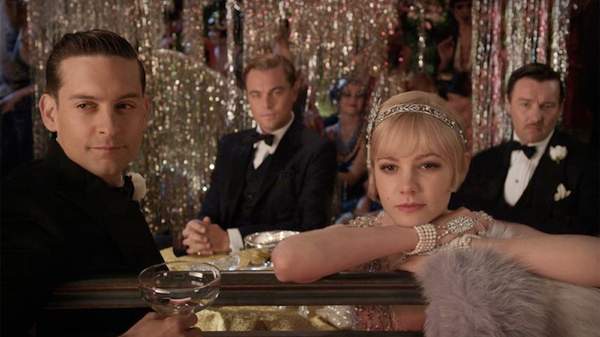Overview
The first half of Baz Luhrmann's The Great Gatsby is every bit its director, and is to be endured rather than enjoyed. Set during America's economic boom of the 1920s, the action is cartoonish, the dialogue is almost devoid of nuance and the lavish parties appear dull despite all the sparkles in the world — a regrettable triumph of impeccable style over substance.
Apologists may argue this merely reflects Gatsby's time and theme: a shallow, superficial facade to reflect its characters and their unapologetic opulance, but that is too convenient. Simple regard to Luhrmann's history reminds us that exaggerated spectacle is every bit his custom, not a carefully chosen device, and his fondness for juxtaposing period drama with modern music (the soundtrack was produced by Jay-Z) proves more distracting than entertaining.
Matters improve immeasurably, however, in the second half when Luhrmann begins to explore his favourite theme of forbidden love twixt star-crossed lovers. Moulin Rouge, Strictly Ballroom and Romeo & Juliet all hit their highest notes when the pagentry gave way to the intimate, and Gatsby is no exception. The stolen moments between its protagonist Jay (Leonardo DiCaprio) and Daisy (Carey Mulligan) are appropriately tender but ominous, presided over with a mix of fascination and regret by the film's narrator Nick Carraway (Tobey Maguire). To borrow from Fitzgerald, these few quiet moments are — compared to the 'rotten crowd' of the first hour — worth more than the lot of them put together.
From a performance standpoint, the women definitely come out on top. Mulligan is utterly charming as Daisy, consistently allowing her character's fragility to worm its way to the surface before masking it with a disarming smile, and Isla Fisher is unrecognisable as the mistress of Daisy's husband Tom (played by Joel Edgerton in yet another impressive turn). Most captivating of all, however, is the statuesque Elizabeth Debicki, who commands the eye in every frame of film she occupies.
In terms of the men, Maguire's doe-eyed exuberance is endearing enough, though at times it strays almost to the point of clowning, and Jason Clarke provides a nice cameo as Fisher's dim-witted husband. In the role of Gatsby, DiCaprio looks every bit the man whose smile "was one of those rare [ones] with a quality of eternal reassurance in it, that you come across four or five times in life", yet his performance feels largely wooden and unnatural. It's as if the words and accent are not his own, particularly in the first half where they seem so apart from his body as to invoke uncomfortable memories of Tom Hardy's Bane.
Ultimately, it's far from the disaster indicated by some of its early reviews, particularly those that labelled it a 'two-hour music video', and there's no denying Luhrmann has a flair for engaging the senses with his extraordinary vision. That said, The Great Gatsby largely departs from the memory almost as quickly as it arrives, an impermanent and largely uncritical adaptation of F. Scott Fitzgerald's beloved take on the infirmity of the American Dream.
Information
When
Thursday, May 30, 2013 - Wednesday, July 10, 2013
Thursday, May 30 - Wednesday, July 10, 2013
Where
Various cinemas in SydneyPrice
$20-25-
Event Type
